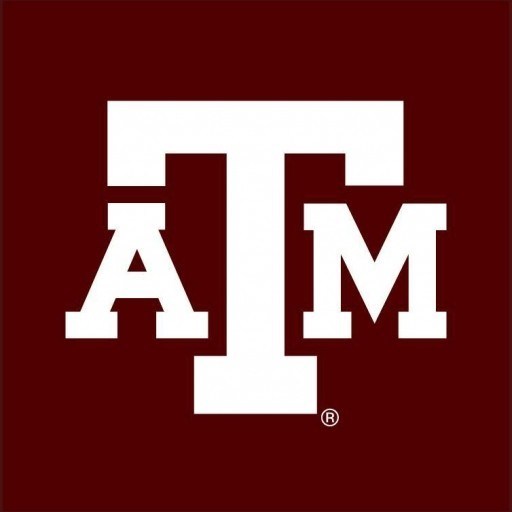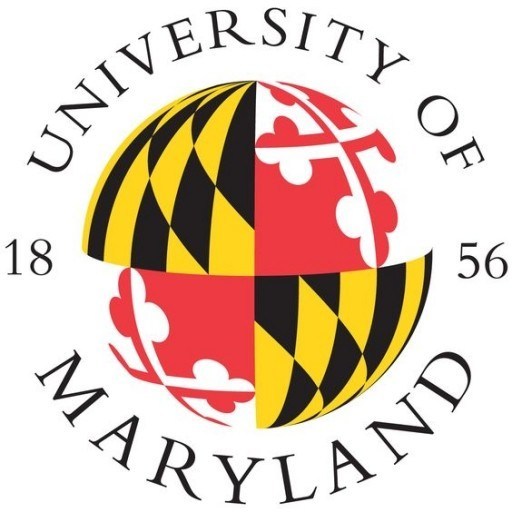Photos of university / #tamu
The Bachelor of Science in Biological and Agricultural Engineering at Texas A&M University is a comprehensive program designed to prepare students for a wide range of careers in the agricultural, environmental, and biotechnological sectors. This multidisciplinary program combines principles from engineering, biological sciences, and agricultural systems to address the complex challenges related to food production, natural resource management, and environmental sustainability. Students will engage in coursework covering areas such as fluid mechanics, thermodynamics, biology, soil science, water resources, and systems modeling, providing a solid foundation in both engineering principles and biological sciences. The program emphasizes hands-on learning through laboratory work, design projects, and internship opportunities, enabling students to apply their knowledge to real-world problems. Students are encouraged to develop critical thinking and problem-solving skills, preparing them to innovate in areas such as sustainable agricultural practices, renewable energy, water quality management, and bioprocessing technologies. The curriculum is designed to meet the accreditation standards of engineering organizations, ensuring graduates are well-prepared for professional licensure and careers in industry, research, or government agencies. Texas A&M’s state-of-the-art laboratories and research facilities provide an ideal environment for experiential learning and research collaborations. Graduates of the program are equipped to contribute significantly to the development of sustainable solutions for food security, environmental protection, and resource efficiency. Whether pursuing careers in designing agricultural machinery, improving irrigation systems, developing bio-based products, or conducting environmental assessments, students will find diverse opportunities upon graduation. The program also encourages participation in student organizations, research projects, and community outreach initiatives, fostering leadership and professional development. With a strong emphasis on innovation, sustainability, and practical skills, the Biological and Agricultural Engineering program at Texas A&M University prepares students for successful careers dedicated to improving the quality of life through engineering solutions in biological and agricultural contexts.
Courses
| First Year | ||
|---|---|---|
| Fall | SCH | |
| CHEM 107 | General Chemistry for Engineering Students | 3 |
| CHEM 117 | General Chemistry for Engineering Students Laboratory | 1 |
| ENGR 111 | Foundations of Engineering I | 2 |
| MATH 151 | Engineering Mathematics I 1 | 4 |
| PHYS 218 | Mechanics | 4 |
| Term Semester Credit Hours | 14 | |
| Spring | ||
| BIOL 113 | Essentials in Biology | 4 |
| ENGL 104 | Composition and Rhetoric | 3 |
| ENGR 112 | Foundations of Engineering II | 2 |
| MATH 152 | Engineering Mathematics II | 4 |
| PHYS 208 | Electricity and Optics | 4 |
| Term Semester Credit Hours | 17 | |
| Second Year | ||
| Fall | ||
| CHEM 222 | Elements of Organic and Biological Chemistry | 3 |
| MATH 251 | Engineering Mathematics III | 3 |
| MEEN 221 | Statics and Particle Dynamics | 3 |
| MEEN 222/MSEN 222 | Materials Science | 3 |
| Government/Political science | 3 | |
| Term Semester Credit Hours | 15 | |
| Spring | ||
| BAEN 201 | Analysis of Biological and Agricultural Engineering Problems | 3 |
| BAEN 301 | Biological and Agricultural Engineering Fundamentals I | 3 |
| BAEN 320 | Engineering Thermodynamics | 3 |
| CVEN 305 | Mechanics of Materials | 3 |
| ENGL 210 | Technical and Business Writing | 3 |
| MATH 308 | Differential Equations | 3 |
| Term Semester Credit Hours | 18 | |
| Third Year | ||
| Fall | ||
| BAEN 302 | Biological and Agricultural Engineering Fundamentals II | 3 |
| BAEN 340 | Fluid Mechanics | 3 |
| BAEN 354 | Engineering Properties of Biological Materials | 3 |
| BAEN 375 | Design Fundamentals for Agricultural Machines and Structures | 3 |
| ECEN 215 | Principles of Electrical Engineering | 3 |
| Term Semester Credit Hours | 15 | |
| Spring | ||
| BAEN 365 | Unit Operations for Biological and Agricultural Engineering | 3 |
| BAEN 366 | Transport Processes in Biological Systems | 3 |
| BAEN 370 | Measurement and Control of Biological Systems and Agricultural Processes | 3 |
| American history 2 | 3 | |
| Government/Political science | 3 | |
| Mathematics 3 | 3 | |
| Term Semester Credit Hours | 18 | |
| Fourth Year | ||
| Fall | ||
| BAEN 479 | Biological and Agricultural Engineering Design I | 3 |
| ENGR 482/PHIL 482 | Ethics and Engineering 4 | 3 |
| BAEN elective 3 | 3 | |
| ENGR elective 3 | 3 | |
| Social and behavioral sciences 2 | 3 | |
| Term Semester Credit Hours | 15 | |
| Spring | ||
| BAEN 480 | Biological and Agricultural Engineering Design II 4 | 3 |
| BAEN elective 3 | 3 | |
| American history 2 | 3 | |
| Creative arts 2 | 3 | |
| Technical elective 3 | 3 | |
| Term Semester Credit Hours | 15 | |
| Total Semester Credit Hours: | 127 | |
Required Documents
- ESSAYS
- $90 PROCESSING FEE
- OFFICIAL HIGH SCHOOL TRANSCRIPT
- OFFICIAL SAT or ACT Scores (including optional essay)
- PROOF OF ENGLISH PROFICIENCY
Applicants whose native language is not English are required to submit proof of English proficiency, which is satisfied by one of the following:
- a minimum TOEFL score of: 550 for paper-based testing (p-BT) or 80 internet-based testing (i-BT)
- a minimum SAT Critical Reading (Verbal) score of 500
- a minimum ACT English score of 21
- a minimum IELTS score of 6.0 overall band
- a minimum PTE Academic score of 53
- completing all four years in a high school within the U.S.
Scholarship Information
1) International Student Financial Aid Application (ISFAA)
As an International student, you may qualify for a few programs depending upon your visa status.For the 2016-2017 academic year, please download the ISFAA (International Student Financial Aid Application from the FORMS page. The priority date to submit the ISFAA is May 1. Completion of the ISFAA does not guarantee that aid will be awarded. With a U.S. co-signer, you may also be eligible to apply for an Alternative Student Loan.
2) Industrial Affiliates Program (IAP).
These scholarships are $1,000 and are available to undergraduate and graduate students, based on need and merit. The number and amount of these scholarships are based upon contributions from corporate sponsors and may vary from year to year.
3) 2016 FIRST Scholarship Opportunities
- In support of the FIRST (Application Link - filter by State) mission, the Department of Computer Science and Engineering is offering one (1) merit-based scholarship for $1,000 to high school seniors who have participated on a FIRST team during their school career.
- This scholarship must be utilized for undergraduate courses in either computer science or computer engineering in the Department of Computer Science and Engineering at Texas A&M University in College Station, Texas.
- Each recipient must meet the regular academic requirements for admission to Texas A&M University and the College of Engineering.
- Deadline is January 15 of each year
4) Southerland Aggie Leader Scholarship
Eligibility: Undergraduates, graduates, and professional students; minimum cumulative GPR of 2.5 at Texas A&M
The Bachelor of Science in Biological and Agricultural Engineering at Texas A&M University is a comprehensive program designed to prepare students for careers in the sustainable development and management of biological and agricultural systems. The curriculum combines principles from engineering, biology, agriculture, and environmental science to equip graduates with the skills necessary to solve complex problems related to food production, environmental quality, renewable energy, and resource management. Students in this program gain a strong foundation in mathematics, physics, chemistry, and biological sciences, which are integrated with engineering concepts such as systems analysis, process design, and control.
The program emphasizes hands-on learning through laboratory work, design projects, and internships, providing students with practical experience in real-world applications. The multidisciplinary nature of the program allows students to specialize in areas such as water resources engineering, bioenvironmental engineering, renewable energy, agricultural machinery, or food processing. Graduates are well-prepared for careers in consulting, manufacturing, research, government agencies, and agricultural industries, or for pursuing graduate studies.
Texas A&M University offers state-of-the-art facilities, including advanced laboratories and research centers dedicated to agricultural and biological engineering research. The faculty comprises experienced professors and researchers who are actively engaged in innovative projects related to water resource management, bioenergy, sustainable agriculture, and environmental protection. The program also encourages students to participate in student organizations, competitions, and research opportunities, fostering leadership and professional development.
Admission requirements typically include a strong high school academic record with emphasis on science and mathematics courses. The program is accredited by ABET, ensuring high standards of engineering education and enhancing employment prospects for graduates. The university’s location in Texas, a hub for agriculture and energy industries, provides numerous opportunities for industry collaborations, internships, and employment upon graduation. Overall, the Biological and Agricultural Engineering program at Texas A&M University is designed to develop versatile engineers capable of addressing critical challenges in modern agriculture and environmental management.





